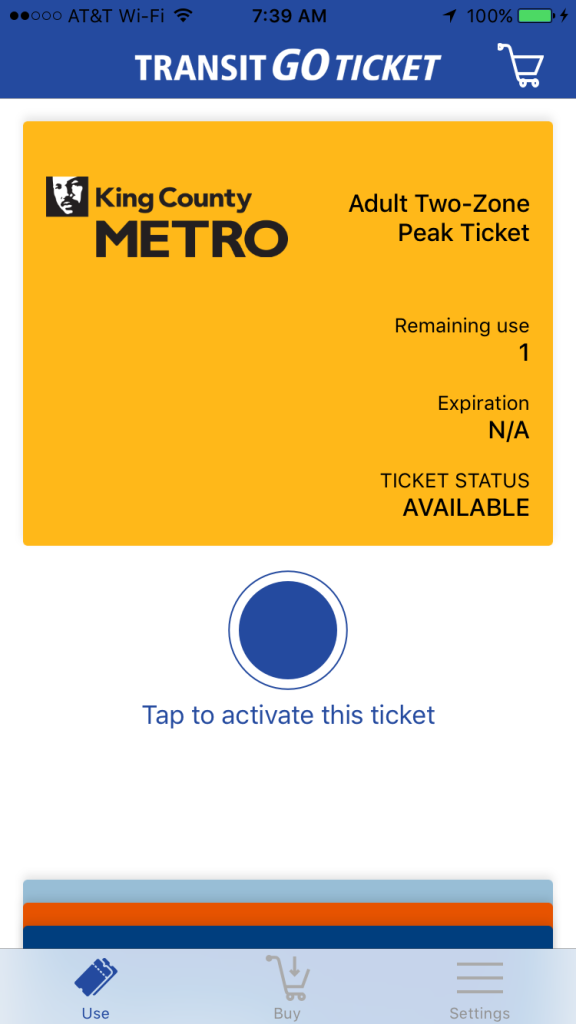We have the technology to make transit fare payment faster and more convenient. Agencies around the world are making progress on fare collection innovations that improve riders' experience -- with benefits like shorter trip times, getting more transit trips for your buck, and demystifying the process of buying a fare for new riders.
Two Seattle agencies are about to adopt a new method of fare collection. Zach Shaner at Seattle Transit Blog reports that Sound Transit and King County Metro are rolling out a mobile payment option:
On Thursday, King County Metro and Sound Transit will announce Puget Sound’s first mobile ticketing app, called TransitGoTicket. The app will allow Metro and (some) Sound Transit riders to purchase tickets and day passes on their phones without having to buy or use an ORCA card. The iOS app is already live, with Android and Windows to follow Thursday.
The 6-month pilot project is funded by a grant from the Federal Transit Administration (FTA). After 6 months, Metro and Sound Transit will likely conduct a Title VI analysis before deciding on a 6-month extension. If deemed successful after 1 year, the program would become permanent. Ongoing costs include 1.5% of mobile fare revenue to ByteMark and a $126,000 annual fee once in full production (after the pilot ends). New agencies could join for $45,000.
A well-executed mobile ticketing program in greater Seattle will greatly reduce friction for occasional transit riders. Day pass purchasers will no longer have to incur the nation’s highest card fee ($5 for new ORCA cards). Users can buy a handful of tickets or passes in advance for later use at their discretion. Riders wanting a true Link day pass will no longer have to first ride to a terminal station (Angle Lake or UW) to buy one, since current Link day passes are only valid for travel between two stations.
Not all of the Seattle region's transit operators are on board with mobile ticketing yet. To get the most out of the new platform, it should work seamlessly with different providers.
Elsewhere on the Network today: The Better Bike Share Blog surveys the state of bike-share systems in cities in Asia, Africa, and Central America. Greater Greater Washington reports that DC has released new mapping tools showing where streets are most dangerous, as well as locations where construction projects interrupt the walking or biking network. And Architect this City explains how Toronto's underground retail district seems to work well for the city, despite pulling foot traffic off the sidewalks.






